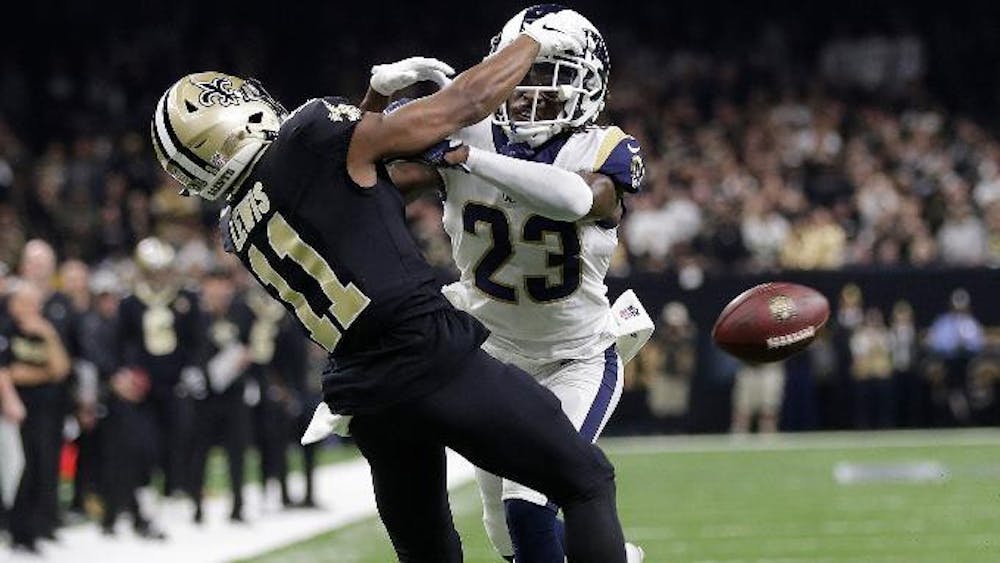Although the New England Patriots and the Los Angeles Rams will face off in the Super Bowl this year, both teams were a rule change away from sitting at home instead.
Drew Brees and the New Orleans Saints looked to be on the cusp of a game-winning drive in the closing minutes of the NFC Championship. Sean Payton elected to keep his foot on the gas by calling a first-down play for Michael Thomas – a pass that would fall short and stop the clock in Los Angeles’ favor.
On the ensuing third-and-10, the Saints were looking at 1:49 on the clock from the Rams’ 13-yard line. Brees dropped back to sling one to Tommylee Lewis for a near-sideline grab. Well before the arrival of the football, Rams’ cornerback Nickell Robey-Coleman tackled Lewis with helmet-to-helmet contact.

It does not take an NFL referee to understand that the hit by Robey-Coleman warranted a flag. In hindsight, a fan might have done a better job in the moment, as the referees chose to put their whistles in their pockets. New Orleans’ momentum vanished from that point onward.
New Orleans was forced to kick a field goal that put them up 23-20. Jared Goff then marched his team down the field to tie the game and send it to overtime, where the Rams eventually won.
Due to a flawed set of rules and instant-replay capabilities, a different team than what could have been is representing the NFC in the big game.
Fate would have it that the AFC game saw extra time as well, as the Kansas City Chiefs bounced back after a poor first half performance against the Patriots.
Despite Patrick Mahomes leading the charge, not a single player on the field had the most power when deciding the outcome of that game. Instead, a coin-flip became the most-valuable asset.
As it stands, the current format for overtime allows for a game to end on the first drive of if a team scores a touchdown. If a field goal or any change of possession occurs, the other team is granted a possession of its own. If both teams manage just a field goal in their opening drives, the outcome is decided on the next score.
The flaw is that if a team scores on the first drive, then the other team will never even touch the ball. Instead of being based on skill, the game is decided on luck. Despite the Super Bowl teams being decided, the method in which they got there must be a main point of emphasis for league executives this offseason.
Anthony Talarico can be reached at anthony.talarico@student.shu.edu or on Twitter @ant_tal.





